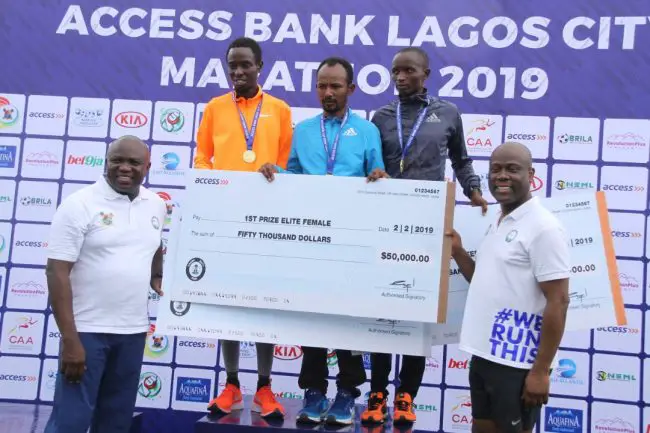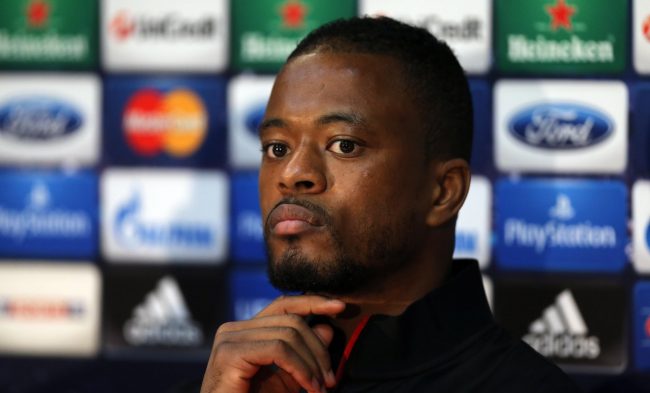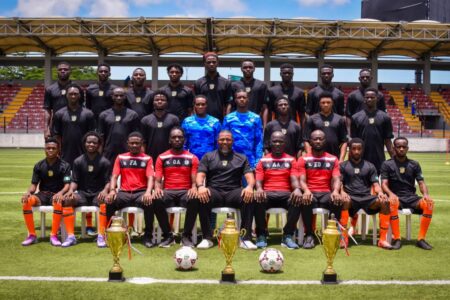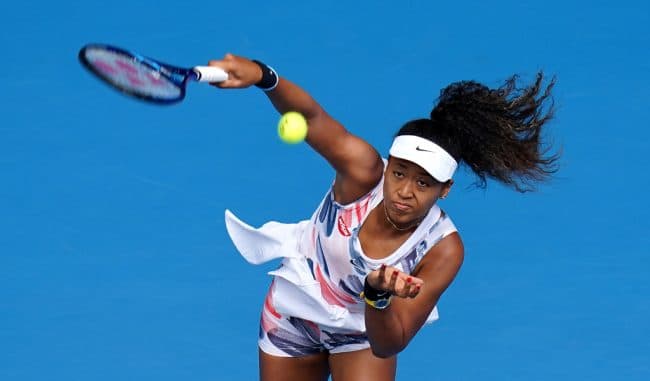Listen to the article
Last weekend, Lagos took a rare moment to stop and watch the 2019 Access Lagos City Marathon.
Once you get past the momentary inconvenience of having major routes in the city closed off, you can’t help but be in awe of the thousands of local marathon enthusiasts who started training for this year’s marathon and the ones before.
With each year, more people get new running shoes and a pedometer as part of their daily routines and begin the arduous task of getting fit for the Access Marathon. And really, who wouldn’t be motivated.
To share a route with some of the continent’s most celebrated professional runners and international athletes for a chance at an impressive $400,000 cumulative cash prize for the varying categories of winners is not an opportunity that comes often to us Lagosians.
This year, 4000 professional marathoners registered for the competition, a literal drop in the sea of expected 150,000 runners. It was inspiring to watch them, the literal horde that swarmed out of the National Stadium in Surulere as the race began, thinning out as the kilometres dwindled. The entire race was thankfully free of any real controversy though it wasn’t without its own share of sportsman drama.
SintatehuLegese, the overall winner of the marathon upset Kipkorir Joshua, the front runner for the entirety of the race with a last minute sprint that closed the gap between them and gave Legese a hard-won one-minute win over Kipokrir. The first Nigerian winner, Sunday Manasa was hot on the heels of the winners with only a four-minute difference between him and Legese.
Our amateur marathoners didn’t let up on the professionals either. Several thousands of them completed the race even after all the positions that attracted prize money were taken.
They could have just stopped and taken one of the several shuttle buses ferrying runners who either passed or reached their limit to the celebrations at the finish line but they persevered to the end. Every single amateur who crossed that finish line is a personal hero and their success begs the question; why aren’t there more events of this nature, open and inclusive to all Nigerians?
The Access Lagos Marathon is only in its fourth year, and already we can see how it is impacting our city and changing how people interact with it.
New York City has several dozen marathons and road races during the year in its city, encouraging its residents to take up athletics as a way to keep healthy, participate in community building and bring in tourism to their great city. The Access Marathon is a prototype for what will hopefully become a national pastime for Access Bank to support the Lagos marathon in this way, not just with a financial support but actively participating in the entire process of promoting the marathon, engaging the people who spectate and participate and promoting sustainability through sports and fitness is an important example of how banks and other financial institutions can become an active part of the communities in which they operate and the people whom they cater to.
Young people are tired of ‘hip’ social media handles, and witty jokes that aren’t backed by any tangible contributions to the community.
In the mid-2010’s, spurred by new technology and the Instagram craze, the fit-fam wave that was sweeping through the continent finally found its way to Nigeria. The privileged bought fit-bits and gym memberships, but in all communities in Lagos, and across the country, pockets of fitness junkies found each other and began to promote a healthier lifestyle.
Not many private companies have encouraged this new craze in tangible ways like Access Bank has. Between this, the Fifth Chukker Polo charity event and its recent decision to sponsor Nigeria’s first professional cycling team at the upcoming Union Cycliste International (UCI) Continental Circuit; the Bank is listening to the very vocal interests of young people and providing them opportunities to represent the country, give back through philanthropy and build their communities through inclusive sporting competitions.
The Access Lagos Marathon is so important not just for the community building and sustainability it fosters, but also for the support and visibility to brings to athletics in Nigeria. A good number of our international sporting medals have come from athletics.
Emmanuel Arinze Ifeajuna who won Africa’s first gold medal at the Common Wealth Games and ChiomaAjunwa who won Nigeria’s first gold medal at the Olympics won their medals and found their glory in Athletics. But unlike football that has left fancy stadiums and spread into every unused patch of land, Athletics has been unable to penetrate our inner cities, reaching children and young adults who otherwise would never have access to it.
The Access Lagos Marathon is a huge step in the right direction to fix this and bring a new generation of young people who are not in the traditional academic sports pipeline into the sport and who knows future glory.
Events like the Access Marathon brings something important to Lagos; dare I even say vital to its growth as a mega city. Events like this provide an organic way for tourists to discover the city and mingle with its residents, and they ask that everyone, no matter their status or class, get a pair of running shoes and take their own health and fitness into their hands.
The fact that the competition’s only barrier to entry is that the entrant be physically fit and in good health encourages everyone to participates and inspires young people who don’t come from privileged backgrounds to experience and participate in a world class event.
The Marathon also prioritizes personal health by providing incentives and an achievable milestone for people getting on to the health care wagon as part of their new year resolutions. Sure, some people dismiss this growing interest in personal health as a ‘fitfam’ fad, but if there are events like this, then interest will only grow.
We’ll have to wait another 11 months for next year’s marathon, more than enough time to get on the bandwagon and become a part of the thousands that will help Access Lagos Marathon make Nigerian history and beat its own record for most people participating in a major sporting event. It is also more than enough time for Sunday Manasa to close that four minute gap. Now that’s a record we should all aspire to be a part of.







